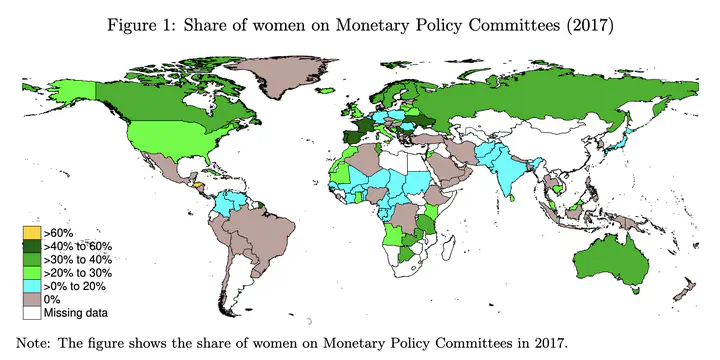Women and Governance: Central Bank Boards and Monetary Policy
 Women and Central Bank Boards
Women and Central Bank BoardsAbstract
Monetary policy decisions taken by central banks affect the economy, society and politics worldwide. Does the presence of women matter in these decisions? We construct a new and unique dataset on the presence of women on central bank monetary policy committees for a large sample of countries, over the period 2001-2017 and document an increasing share of women on central bank boards. We investigate how the presence of women correlates with the conduct of monetary policy by estimating Taylor rules augmented to include the share of women on monetary policy committees. We show that central bank boards with a higher proportion of women are more responsive to inflation. This suggests that central banks whose boards are characterised by a higher presence of women are associated with a more conservative approach to monetary policy when inflation is higher. We confirm this result by analysing the voting behaviour of members of the executive board of the Swedish Central Bank during the period 2000-2017.
Status
Forthcoming at American Law and Economics Review (October 2024).